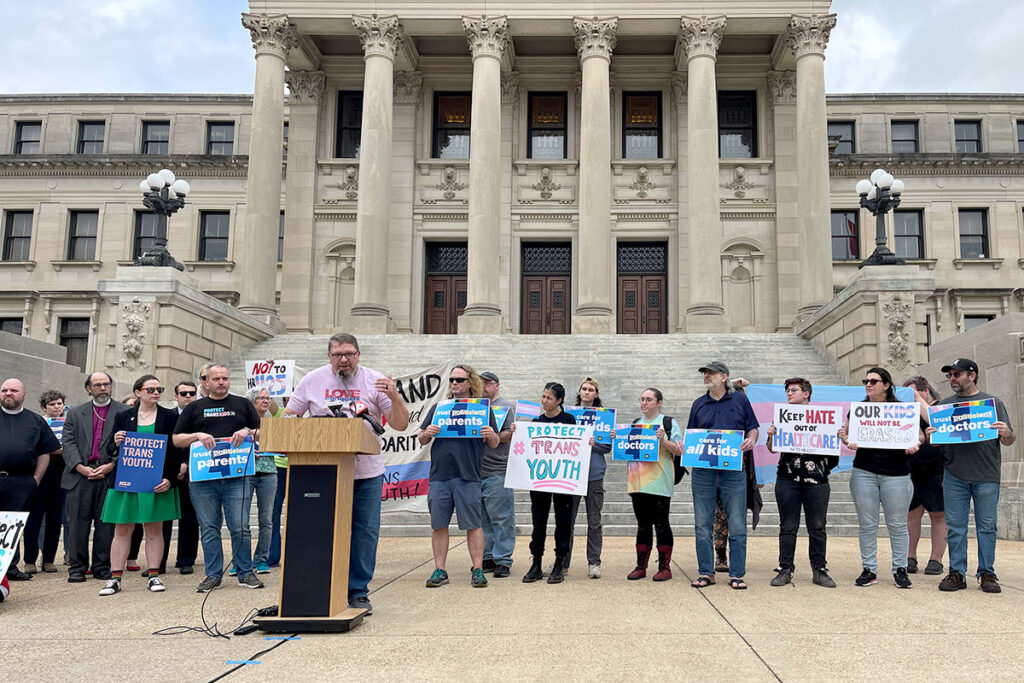A bill banning treatments for young transgender Mississippians is headed to Gov. Tate Reeves’ desk after Mississippi senators passed it by a vote of 33-15 today. The Mississippi House of Representatives previously passed House Bill 1125 on Jan. 19.
The bill, known as the “Regulate Experimental Adolescent Procedures (REAP) Act,” would prohibit standard care such as hormone therapy and puberty-blocking drugs by barring public funds from going to “any entity, organization or individual that provides gender transition procedures to a person under eighteen years of age.”
The bill would also ban gender confirmation surgeries, but House lawmakers admitted on the floor in January that they are not aware of any transgender Mississippians receiving such surgeries. Rep. Nick Bain, R-Corinth, said in January that he is a co-sponsor of the bill because he supports a “wait-and-see approach,” but admitted that he is “not a doctor”or “a professional in this regard.”
Gov. Tate Reeves has indicated support for legislation banning care for transgender minors. In his January State of the State Address, he said the State “must continue to do everything in our power to counter those who want to push their experiments on our kids” and called on lawmakers to fight against “the cruel forces of modern progressivism which seek to use them as guinea pigs in their sick social experiments.” In 2021, the governor signed a bill banning transgender students from playing on school sports teams that match their gender identity.

Human Rights Campaign Mississippi Director Rob Hill told the Mississippi Free Press in January is “concerned” because he knows the families of transgender children and teens.
“And it’s already a very challenging situation being able to afford the kind of care they need and the mental health impact it has on these young people,” he said. “This is not a decision the parents or children make lightly, and so I worry about the mental health of the young people. I worry about the mental health of the parents and family of the loved ones.”
While transgender minors have significantly higher rates of suicide than their peers, a study published in the New England Journal of Medicine in January found that transgender teenagers who receive gender-affirming hormone treatments experience improved mental health and lower levels of depression.
“It’s a dangerous thing all around,” Hill told the Mississippi Free Press. “Trans youth disproportionately attempt and unfortunately succeed at suicide. So that’s a very scary thing. And these decisions should be made by family members, not by politicians. And their job is to do good—to work for the good of their constituents.”










